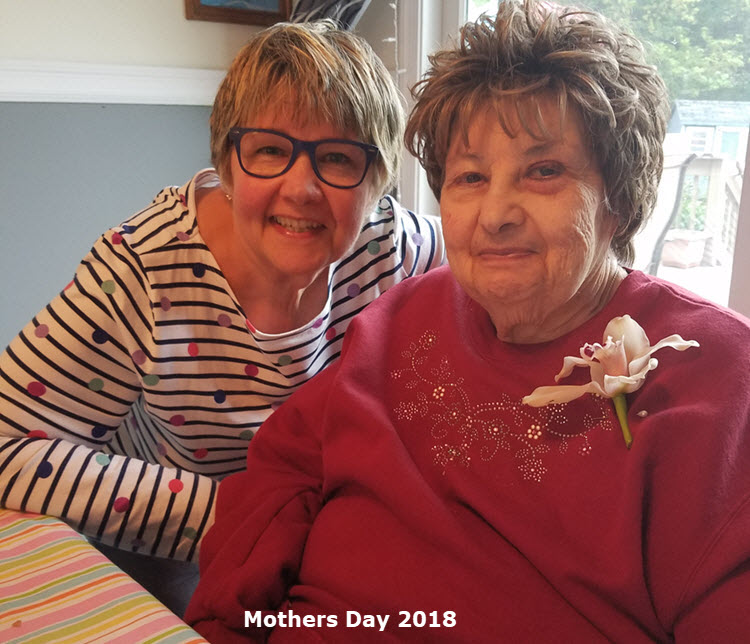And I don’t mean the contract you sign with an agency.
I believe that each relationship is built on a contract: Spouses, Significant Others, Parent/Child, even Friends. Informal and often unspoken, each contract defines interactions and expectations for the relationship. At the most basic level it defines what you are willing or not willing to do for one another.
Imagine being married for 61 years and your spouse dies. That contract, that way of living and being in the world dies as well. Then your child becomes your caregiver. Not only the marriage contract is blown out of the water, but the parent/child contract changes as well. Suddenly expectations are different, and without recognizing and talking about these changes, it can harm the relationship.
I got a taste for what was to come as a caregiver when dad was in the hospital and I was still working. Suddenly I became responsible for mom, the house, two dogs, and dad. I quickly realized I could not continue some of the rituals, some of the ways dad cared for mom and keep my sanity and my health.
Early on as mom’s caregiver, I realized that she had certain expectations about things continuing to work as it had between her and dad. This is an unrealistic expectation on so many levels. Especially if the caregiver is working, has spouse/children, or lives far away. Your competing expectations require that you talk about them and renegotiate the contract. And that is OK. In fact, it’s more than OK, it’s healthy.
Sometimes it’s the little things you change in a contract that makes you feel heard and validated. One of the first changes I asked mom to make was around the bedtime ritual. Dad brought her a glass of water, turned on the light, made sure the curtains were closed, turned down the bed and made sure mom had clothes to dress in the morning. Oh, and every night he brought toothbrush and toothpaste to her. Mom brushes her teeth in a different room, so she doesn’t have to stand while doing it. That one task made my head explode. I asked mom what we could change in her bedtime ritual since I found it overwhelming. Now everything she needs to brush her teeth are in the room where she performs that task. Taking that one little thing off my plate was such a relief. But still it was a letting go of her contract with dad and I appreciate it.
Sometimes it’s bigger things you change in a contract that makes you feel heard and validated. In our family; my parents’ marriage contract was based on traditional roles. My parents made many decisions mutually, but mom is a worrier, so dad shielded her from many things, like what it took to maintain the house. This carried over into dad’s role as mom’s caregiver. He never really told her how sick he was, continuing to go food shopping, run errands, and maintain the house long after he should have asked for help.
When he died, we had a hard conversation about secrets. I was not going to shield her from the reality of what it takes to keep a 60-year-old home in good repair. I was going to ask her to make phone calls that dad would have taken care of for them. Basically, I was not going to be responsible for making all the decisions. We would make them together as a team.
This has been hard for mom. We have a completely different contract than the one she had with dad. It’s hard to let go of old roles, to pick up new ones, and especially come to terms with feelings of “this is not how it was supposed to be, this is not what I signed up for.” I often tell her how proud I am of her, how I know this is just one more thing in her life that has changed, and I realize how difficult this is for her.
So, what is your caregiver contract? What are the unspoken expectations? What difficult conversation do you need to work out for a new, realistic and manageable contract?
Some questions to ask yourself and your care-receiver:
- What help can we ask for, or say yes to, that will make our contract more manageable? Maybe it’s time to hire someone to cut the lawn.
- What rituals throughout the day can you change, modify or do away with today? Maybe mom can’t put away the clothes, but she can fold them while sitting.
- What boundaries do you have to set? Maybe there is only one trip to the grocery store in a weekend.
And be prepared to revisit this contract. Things change.
Disclaimer: The material in this blog is for educational purposes only. It is not intended to replace, nor does it replace, consulting with a physician, lawyer, accountant, financial planner or other qualified professional.


As my siblings and I navigate the complicated waters of elder care, your comments resonate. Thank you!
Alada, you are welcome. The best of luck as you navigate these choppy waters.